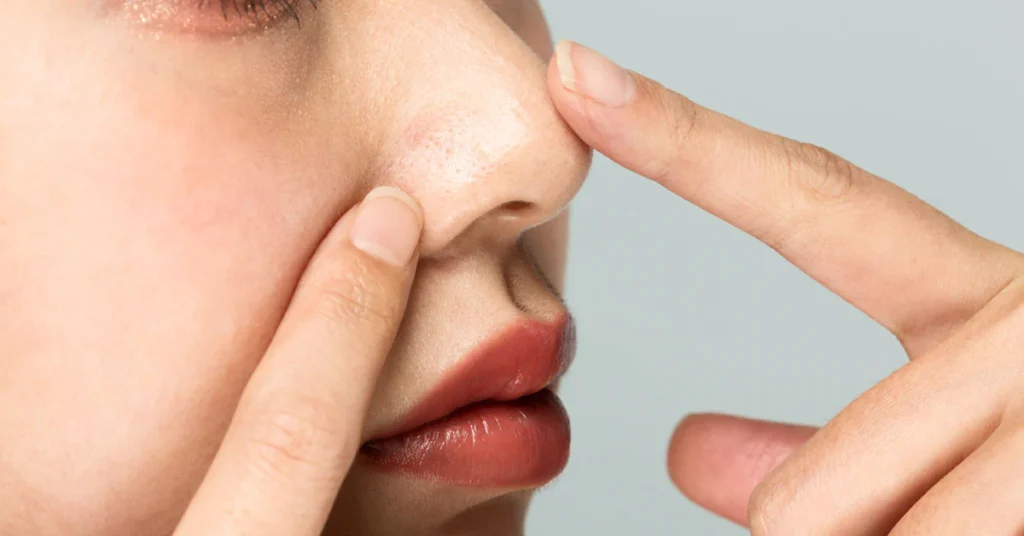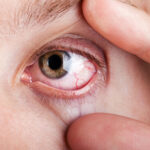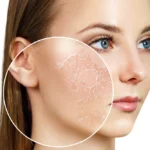Dry nose, also known as nasal dryness, is a common condition that can be uncomfortable and sometimes even painful. It occurs when the nasal passages do not retain adequate moisture, leading to irritation and inflammation. This condition can be triggered by several factors, ranging from environmental influences to underlying health issues. In this comprehensive guide, we will delve into the causes of dry nose, its symptoms, and various treatment methods to relieve the discomfort and prevent future occurrences.

What is Dry Nose?
Dry nose occurs when the mucous membranes inside the nasal passages become dehydrated. This lack of moisture can lead to a variety of symptoms, including a dry, scratchy feeling, irritation, and even bleeding in severe cases. While dry nose is often a temporary condition, chronic cases can significantly impact daily life and may indicate a more serious underlying problem.
Common Causes of Dry Nose
Several factors contribute to dry nose, ranging from environmental conditions to medical conditions. Understanding these causes can help in managing and preventing this issue effectively.
1. Environmental Factors
Dry air, particularly in winter months, is one of the leading causes of nasal dryness. During colder months, heating systems dry out indoor air, which can lead to reduced humidity levels. Low humidity levels in homes, offices, and other indoor spaces can strip moisture from the nasal passages, leading to dryness.
2. Dehydration
When the body is dehydrated, the nasal passages may not receive the necessary moisture. Dehydration can occur due to insufficient water intake, excessive alcohol consumption, or certain medications.
3. Allergies and Irritants
Allergens such as pollen, pet dander, dust, and mold can trigger allergic reactions that result in nasal dryness. Additionally, environmental pollutants, cigarette smoke, and strong chemical odors can irritate the nasal lining, leading to dryness.
4. Medication Side Effects
Some medications, especially decongestants and antihistamines, can cause nasal dryness as a side effect. These medications work by reducing inflammation and congestion but can also reduce moisture levels in the nasal passages.
5. Medical Conditions
Certain medical conditions, such as autoimmune diseases (e.g., Sjögren’s syndrome), can cause chronic dryness in the nasal passages. Other conditions, such as sinus infections and nasal polyps, can also contribute to nasal dryness.
6. Aging
As individuals age, the body produces less mucus, leading to drier nasal passages. This can make older adults more susceptible to dry nose.
Symptoms of Dry Nose
Dry nose manifests in various ways, with symptoms varying from mild discomfort to more severe issues. Common symptoms of dry nose include:
- A dry, scratchy sensation inside the nose
- Itching or burning in the nasal passages
- Crusting or scabs inside the nostrils
- Nosebleeds (epistaxis)
- Difficulty breathing through the nose due to congestion
- Sinus pressure or headache
In some cases, nasal dryness can lead to inflammation of the nasal tissues, making it more prone to infections and further irritation.
How to Treat and Prevent Dry Nose
While dry nose is often a temporary condition, there are several effective strategies to treat and prevent it. These methods can help alleviate discomfort and restore moisture to the nasal passages.
1. Use a Humidifier
A humidifier can add moisture to the air, especially during dry winter months. By increasing humidity levels in the indoor environment, a humidifier helps prevent the drying effect caused by heating systems.
2. Stay Hydrated
Proper hydration is essential to maintaining moisture in the nasal passages. Drink plenty of water throughout the day to keep your body and nasal passages well-hydrated.
3. Apply a Nasal Saline Spray
Saline nasal sprays can help moisten the nasal passages and relieve dryness. These sprays contain a saltwater solution that mimics the natural moisture of the nose, helping to soothe irritation and restore hydration.
4. Avoid Irritants
Minimize exposure to allergens, pollutants, and chemicals that can exacerbate nasal dryness. Consider using air purifiers to filter out dust and allergens in your living space, and avoid smoking or exposure to secondhand smoke.
5. Use a Nasal Gel or Ointment
Nasal gels and ointments can provide a longer-lasting moisture barrier inside the nostrils. These products are typically applied directly to the inside of the nose and help protect the sensitive nasal lining from further dehydration.
6. Take Warm Showers
The steam from a warm shower can help moisturize the nasal passages and relieve dryness. The warm, moist air helps loosen any crusting inside the nostrils and soothes irritation.
7. Manage Allergies
If your dry nose is caused by allergies, consider taking antihistamines or using allergy medications to reduce allergic reactions. Consult with a healthcare provider for the best treatment options.
8. Limit Decongestant Use
While decongestants are effective for relieving nasal congestion, prolonged use can contribute to dryness. Limit the use of these medications and only use them as directed by a healthcare provider.
9. Avoid Overuse of Nose Sprays
Overuse of nasal sprays, such as decongestant or steroid nasal sprays, can lead to rebound congestion and further dryness. Follow the recommended usage instructions and consult a healthcare provider if you have concerns.
When to Seek Medical Attention
In most cases, dry nose can be managed with simple home remedies. However, there are instances when it is important to seek medical attention. If you experience the following symptoms, it is advisable to consult a healthcare professional:
- Persistent or worsening nasal dryness despite treatment
- Frequent nosebleeds
- Signs of infection, such as fever or thick nasal discharge
- Nasal dryness accompanied by other symptoms like fatigue or joint pain, which may indicate an underlying health condition

